Google has introduced some restrictions on real estate-related ads. These restrictions have been imposed to prevent housing discrimination. if you are a real estate investor, agent or lender, planning to run a PPC campaign with Google Ads, you must be aware of these changes because they will impact your ability to target leads based on certain targeting options such as zip code and demographics.
Google had rolled out these changes by the end of 2020. As a digital marketing agency specializing in the real estate niche, we – here at RealyCrux – have noticed a significant impact on different aspects of Google Ads campaigns including cost-per-click (CPC) and cost-per-lead (CPL).
In this guide, I am going to explain what these restrictions are, how they are impacting real estate PPC campaigns, and what steps you can take to stay in compliance and minimize the negative impact on ROI.
Table of Contents
Google Ads new policy for housing ads: An overview
If you are advertising home listings, or real estate services in the U.S. or Canada, your ads will fall under the purview of this new Google Ads policy.
You should have already received a notification from Google if you tried to run a Google Ads PPC campaign in the recent past. Real estate agents, lenders, and investors are receiving these notifications, asking them to agree to the new advertising policy which restricts certain targeting options for housing-related ads.
The new policy will impact your ads if you are a:
- Real estate agent promoting your services for home buyers
- lender promoting mortgages
- property management agency promoting rental properties
These ads will not have an impact on your ads promoting office spaces, hotels, or vacation rentals. If you are a property management agency promoting your services, your ads will not come under the purview of this new policy. Property inspectors and escrow services are also not impacted. So in a nutshell, if your ads are related to the purchase of any type of housing (single-family homes, townhomes, apartments, condos, etc.), the new policy will restrict the targeting options.
How does the new policy impact housing ads?
As a real estate agent, lender or investor, you are no longer able to use certain targeting options specific to home buyers in the U.S. and Canada. Though these restrictions are aimed at preventing housing discrimination so they must be specific to ads related to home buyers, we have seen Google preventing ads that target home sellers such as ‘home valuation’ ads.
Zip code
The biggest impact of the new policy is that ads promoting the database of home and rental listings are prohibited from using Zip codes as a targeting option.
You can continue to use radius, city, and state targeting, but you can no longer use zip code.
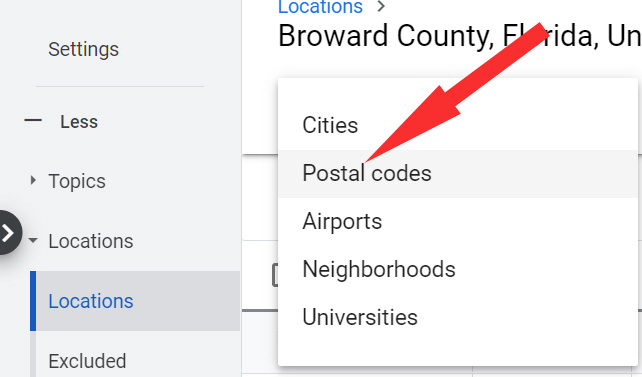
According to Google, targeting must be removed and/or replaced with another form of targeting (i.e., City, State, Radius). Customer Match and Remarketing targeting will only be restricted if they use demographics, Marriage/Marital Status, Parental status, or ZIP Code signals to build user lists.
It means that you can continue to remarket to your list of prospects, but if they were targeted with a zip code targeting option, you cannot include them in your Retargeting or Customer Match campaigns.
How does geo-targeting work for housing-related ads post new ads policy?
While zip code is no longer available, you have many other hyper-local geo-targeting options. They include:
- sub-division
- County
- City
- State
- Radius
Gender & parental status
In the Google Ads dashboard, advertisers can target prospects based on their gender. For example, a company promoting women’s apparel will target females. So, the company can simply ‘Exclude’ males from their demographics targeting.
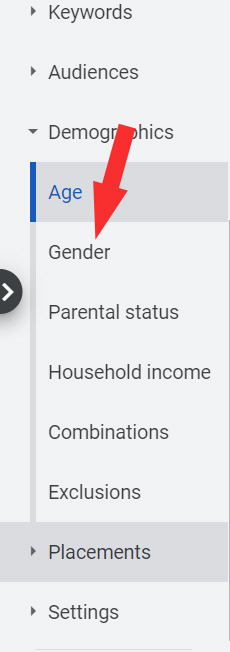
But if you use this targeting option for housing ads, your ad will get disapproved. You can’t discriminate based on gender, so you will need to enable both ‘Male’ and ‘Female’ for a housing-related ad campaign.
Many real estate agents want to target homebuyers who are raising kids. Google Ads provides ‘Parental Status’ targeting options to advertisers, but this is no longer available to real estate agents, lenders, and investors promoting housing opportunities.
Note: In Google Ads, you can manually adjust bids for specific demographic targeting options. But you can adjust bids for a specific gender, age, or parental status targeting. So for example, you can bid more on keywords targeting males, and less on keywords targeting females. It means that the bid adjustment feature can’t be used for demographic-based targeting.
Other restrictions
You cannot target leads based on their marital status, parental status.
You can target leads based on all life events, except for marriage. Google ads allow other advertisers to target leads
How to minimize the impact of Google Ads restrictions on CPL
The good news is that there are plenty of targeting options available that can help you market your services to your prospects if you are planning to run housing-related ads.
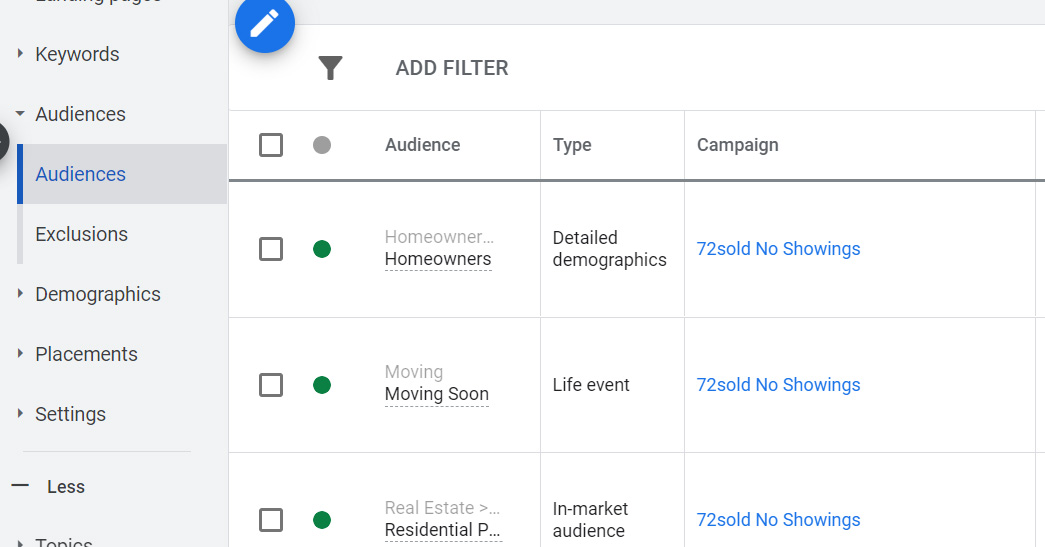
‘Homeownership Status’ targeting options are still available which means that you can filter your audience whether they already own a home or not.
You can’t use zip code as a targeting option, but you can still use Radius. So, if you are planning to target people living in a specific area, you just need to use a landmark in that area and use the radius features (within 5 or 10 miles of that landmark) to make your targeting more specific.
Some other targeting options still available (which are my favorite) include:
Household income: if you are promoting luxury homes or homes in a specific price range, you can use this targeting option.
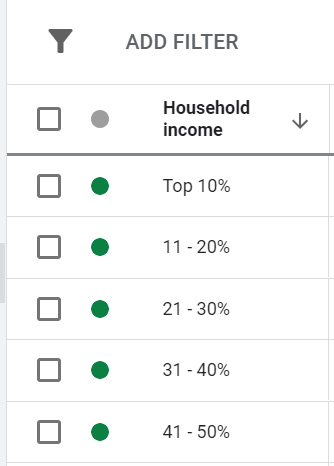
In-Market audience: these are the highly motivated leads who may be in the final stages of buying a home.
Similar Audiences
Detailed demographics (except for marital status and parental status)
What if a Google Ad campaign gets disapproved?
Nine times out of ten, the culprit is some violation of the Google Ads policy. Review the targeting options and determine if you are using zip codes or any prohibited demographics for your campaigns.
While Google restricts using zip code and certain demographics for ads promoting ‘database of residential homes and rentals’, your ads may get disapproved even if you are promoting educational material related to buying and selling a home. For example, you may be promoting a relocation guide and your ad may get disapproved. In these cases, you should pay close attention to the copy of your ads (headline, sub-headline, and text). Don’t use words that may imply that you are advertising a database of home listings or targeting ‘prohibited’ demographics.
You can appeal the policy decision if you believe that your ad got disapproved even when you follow the new policy guidelines.
Read this Google article to learn more about how to raise an appeal.
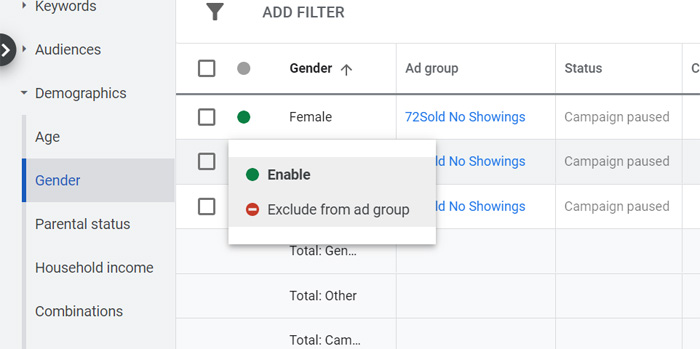
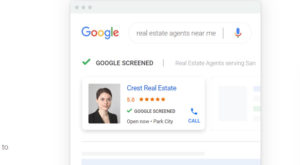
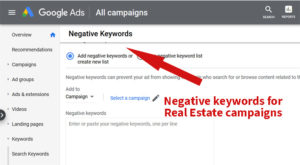


![Ultimate Guide to Real Estate Google Ads Extensions [Examples]](https://realtycrux.com/wp-content/uploads/2020/04/real-estate-google-ad-extensions-main-lxlx2-300x150.jpg)
